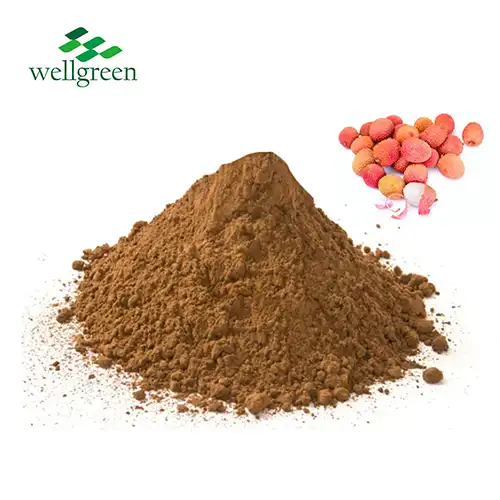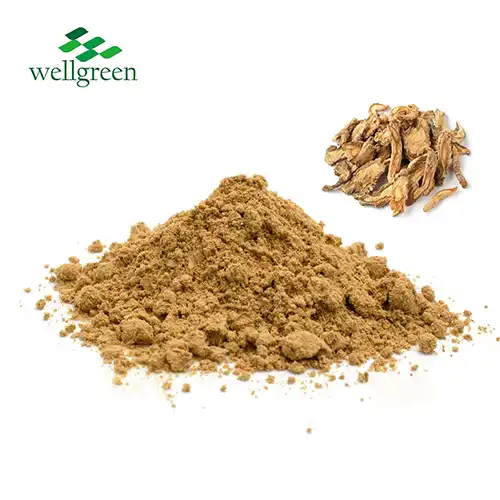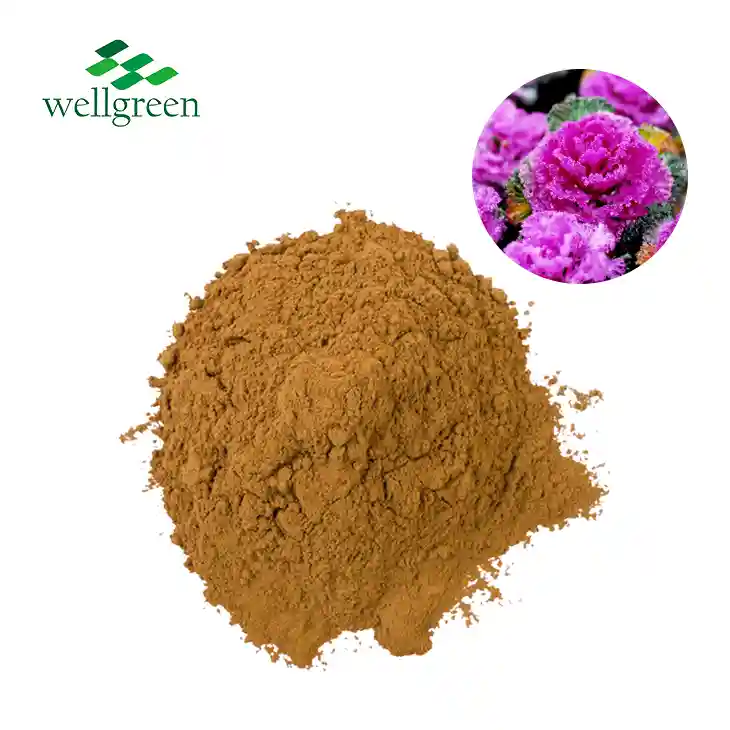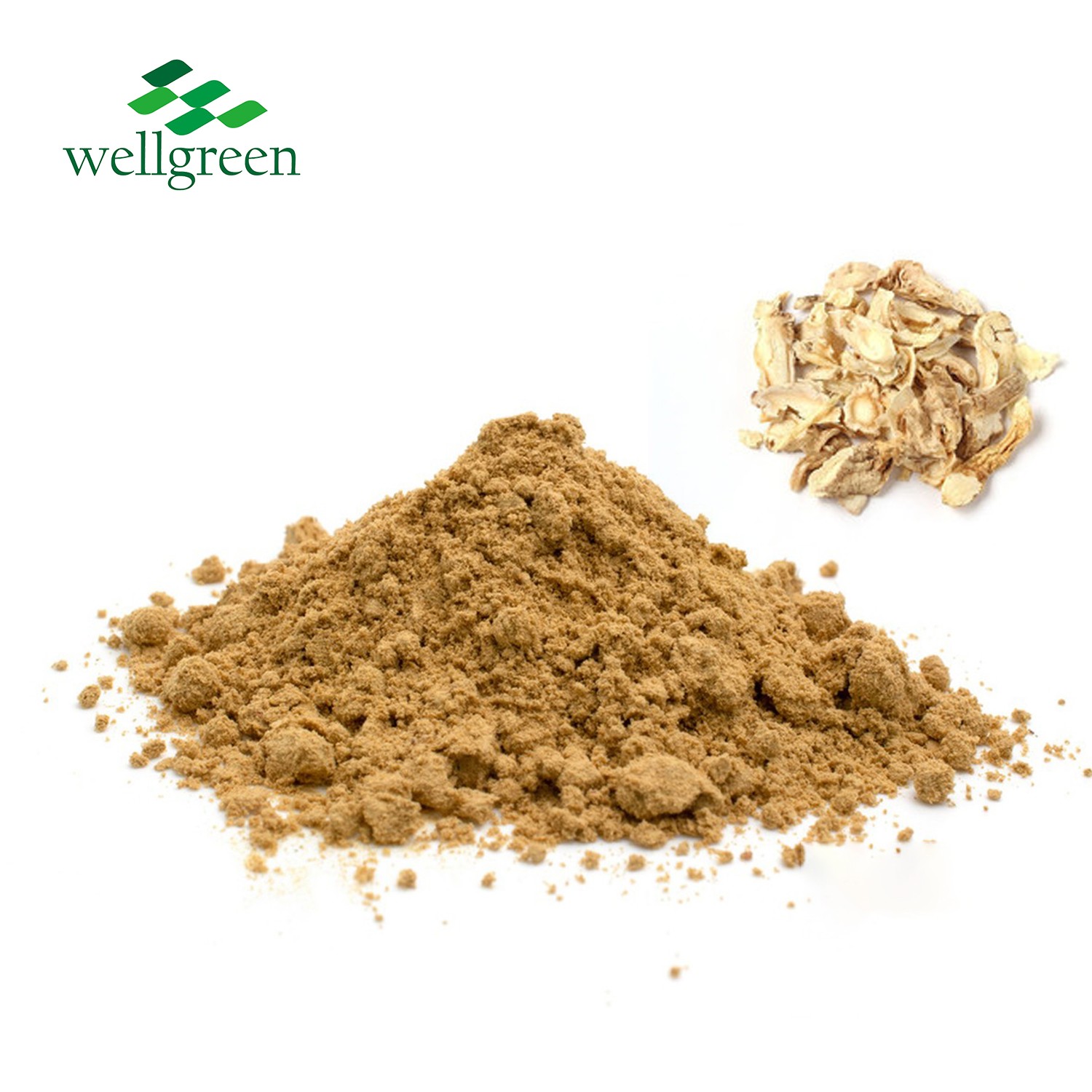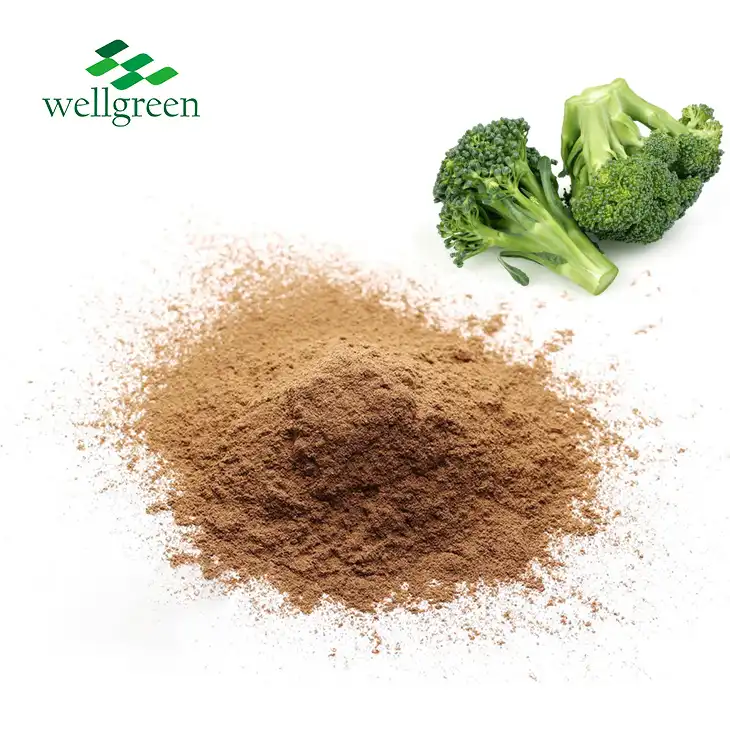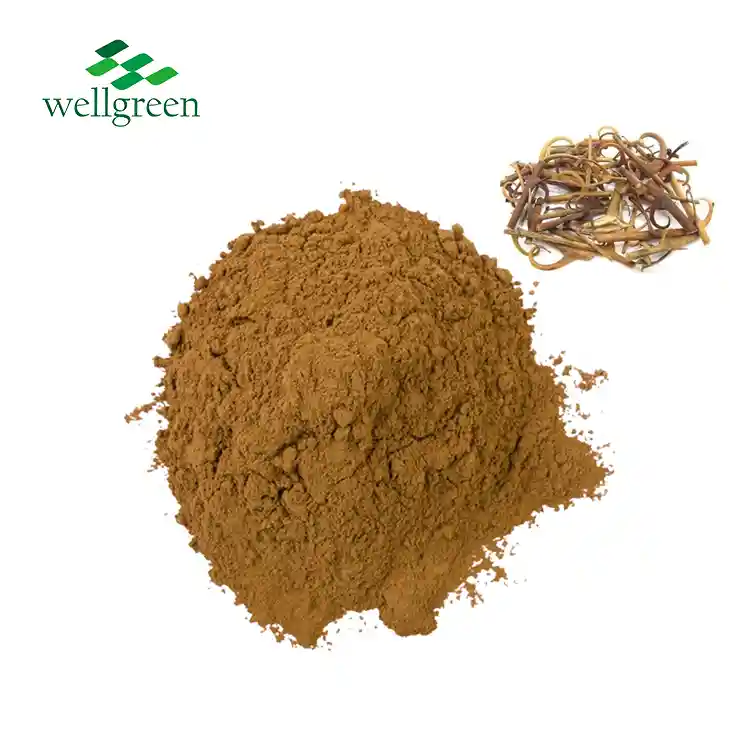Does Matcha Powder Have Caffeine?
2023-11-28 10:21:33
Matcha powder has exploded in popularity in recent years. However many people wonder about its caffeine content and how that impacts potential health benefits. This article dives into the caffeine levels in matcha powder and the unique characteristics of matcha as a caffeinated beverage.
Introduction
Matcha comes from specially grown and processed green tea leaves ground into a fine powder. It has been used for centuries in Japanese tea ceremonies. Today matcha appears in everything from tea lattes to cakes, candy, and beauty products. But does matcha contain caffeine, and if so, how much?
As a green tea derivative, matcha does naturally contain caffeine. However, precise caffeine levels can vary based on cultivating practices, plant genotypes, processing methods, and preparation techniques. Understanding matcha’s caffeine content and the moderating effects of L-theanine allows you to incorporate matcha mindfully and enjoy the spectrum of benefits it offers.
Understanding Matcha Powder
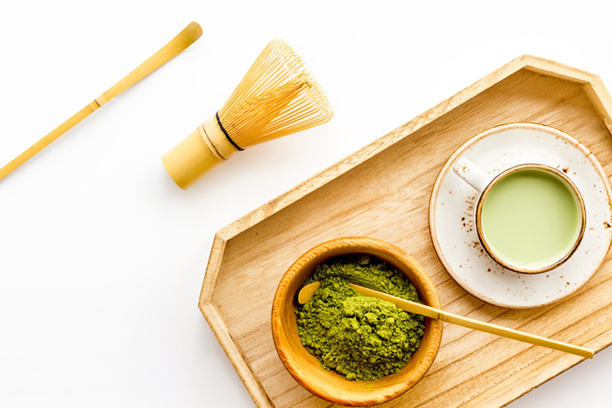 Matcha is made from the leaves of the Camellia sinensis plant. Special cultivation methods like shading boost the amino acid content, giving matcha its characteristic rich umami flavor and bright green color. The leaves are harvested by hand, steamed, stemmed, and deveined before stone-grinding into a fine powder (1).
Matcha is made from the leaves of the Camellia sinensis plant. Special cultivation methods like shading boost the amino acid content, giving matcha its characteristic rich umami flavor and bright green color. The leaves are harvested by hand, steamed, stemmed, and deveined before stone-grinding into a fine powder (1).
In traditional Japanese tea ceremonies, matcha is prepared by whisking the powder with hot water to make a frothy beverage. Today matcha appears as an ingredient or flavoring in all types of foods and drinks. Quality matcha delivers a complex flavor profile and intense antioxidant levels compared to regular green tea.
The Caffeine Content in Matcha Powder
Matcha contains caffeine because it originates from the tea plant. Standard green tea averages around 35mg of caffeine per 8oz serving. Matcha clocks in higher at around 70mg per 8oz serving. However, caffeine levels in matcha can range from 28mg to over 100mg per 8oz serving based on various factors (2).
By comparison, brewed coffee has about 95mg of caffeine per 8oz cup. Energy drinks can contain over 150mg per 8oz serving. So matcha is generally lower in caffeine than coffee or energy drinks (3). However it is higher in caffeine content compared to other types of green tea.
Matcha’s precise caffeine levels depend on cultivation methods, plant genetics, harvesting techniques, and processing procedures. No two matcha products will be identical in their caffeine content.
Factors Affecting Matcha's Caffeine Levels
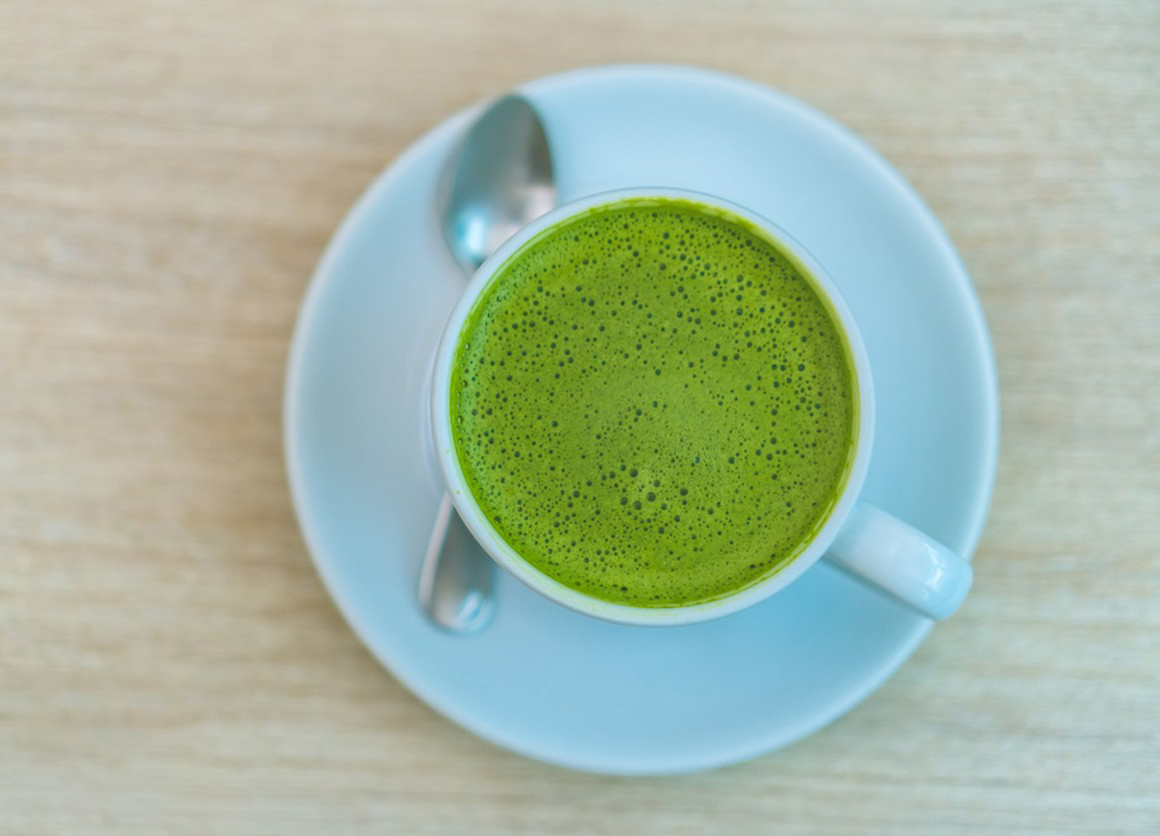 Multiple variables can alter the caffeine levels found in matcha powder:
Multiple variables can alter the caffeine levels found in matcha powder:
- Age of the tea leaves - Older leaves contain more caffeine
- Shading techniques - More shading boosts amino acids and caffeine
- Harvesting time - Spring teas have lower caffeine than autumn teas
- Varietal or cultivar - C. sinensis varietals have varying caffeine levels genetically
- Grinding method - Finer grinds release more caffeine from leaves
- Preparation style - Concentrated forms have higher caffeine
Within authentic matcha production, caffeine content differences are generally not extreme. But matcha can vary
from relatively low to quite high in caffeine depending on these cues.
The Unique Characteristics of Matcha Caffeine
Matcha contains caffeine just like other teas and coffee. But the combinations of compounds make matcha caffeine unique:
- Caffeine is released more slowly during digestion compared to coffee (4).
- L-theanine moderates the effects of caffeine, promoting alert relaxation (5).
- EGCG and other catechins prolong the perception of energy over time (6).
- The whole leaf is consumed, providing higher antioxidant levels (7).
- Flavor and experience of traditional preparation enhance benefits (8).
Many report feeling focused yet calm after matcha with no caffeine crash. However, effects can vary based on the individual.
Managing Matcha Consumption
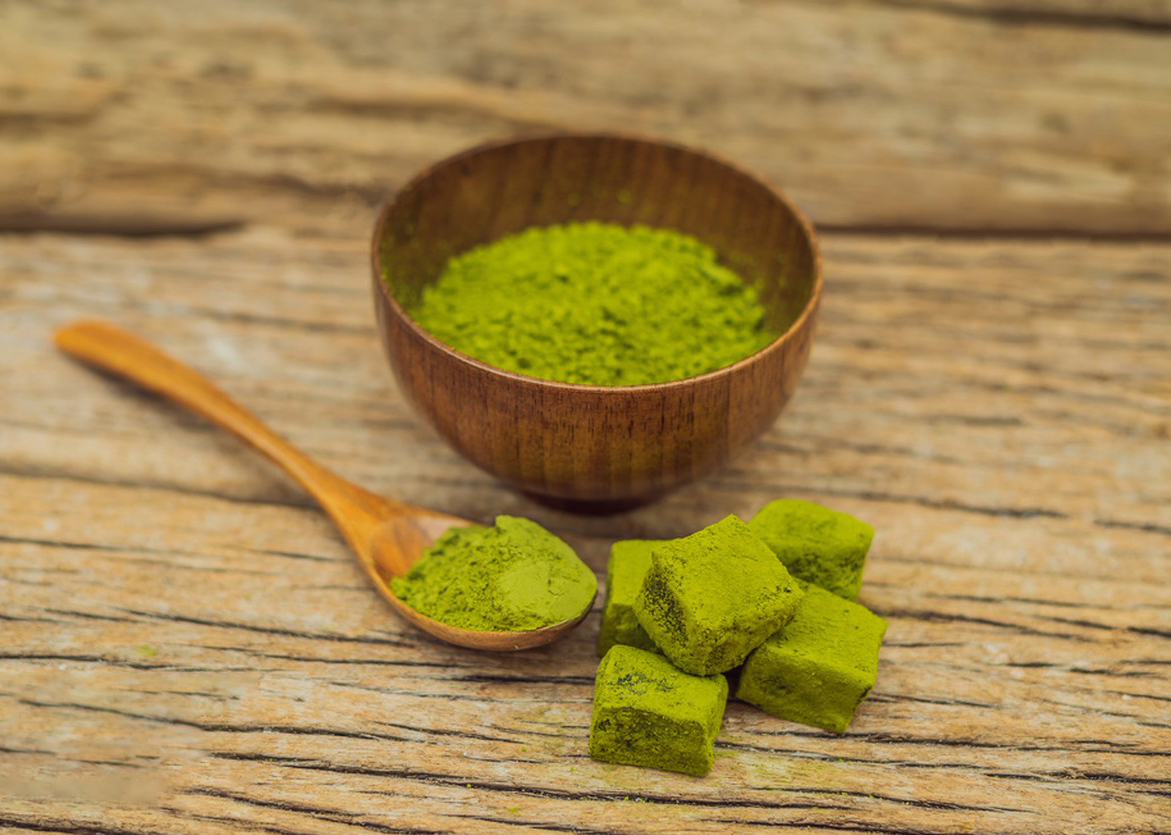
For those concerned about caffeine, there are ways to moderate matcha intake:
- Choose ceremonial grade for lower caffeine levels and better flavor.
- Use smaller serving sizes like 1⁄2 - 1 teaspoon.
- Limit intake to 1 cup per day, avoiding afternoon or evening consumption.
- Opt for matcha lattes made with decaf green tea or herbal “teas”.
- Switch to caffeine-free matcha or lower-caffeine powdered green tea.
- Look for Swiss water process (SWP) decaffeinated Pure Matcha Green Tea Powder.
Pay attention to your own reactions to matcha caffeine. Reduce or avoid matcha if it causes unwanted stimulation or disrupts sleep.
Is matcha powder high in caffeine?
Relative to other caffeinated beverages, matcha is low to moderate in caffeine content when prepared traditionally. Matcha contains substantially less caffeine per cup than coffee, energy drinks, or black tea (9).
However, high-grade matcha consumed in concentrated forms can provide 70-100 mg of caffeine or more per serving. This is on par with 1 cup of coffee depending on factors like leaf grade and preparation style.
For most people, regular matcha intake should not lead to excessive caffeine exposure. However, individuals sensitive to stimulants may still need to be mindful of matcha's caffeine content.
Is matcha caffeine better than coffee?
Both matcha and coffee contain caffeine and high levels of antioxidants. Some key differences between matcha caffeine and coffee caffeine include:
- Slower caffeine release from matcha for less jarring effects (10).
- L-theanine content in matcha for more sustained, calm energy (11).
- Higher EGCG levels in matcha to prolong metabolic effects (12).
- Improved focus and cognition from amino acids like L-theanine (13).
- Minimal crash or headaches reported from matcha versus coffee.
So while caffeine is present in both, matcha provides a different overall experience and range of benefits. However, individual reactions can vary.
Can matcha be caffeine-free?
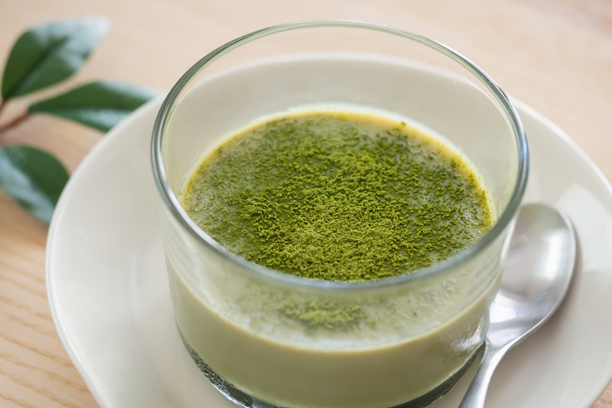 There are a few options for caffeinated-free matcha powder:
There are a few options for caffeinated-free matcha powder:
- Decaffeinated matcha uses carbon dioxide or ethyl acetate to selectively remove caffeine while retaining catechins and
L-theanine (14).
- Herbal matcha blends like rooibos- or barley-based powders mimic flavor and color.
- Ceremonial grade matcha is naturally the lowest in caffeine levels (around 28mg per 1g serving) (15).
- Caffeine-free green tea powder provides color and polyphenols without caffeine.
So for those seeking a caffeine-free experience, there are some alternatives that allow you to enjoy the flavor and
potential wellness benefits of matcha without the stimulant effects.
Will matcha keep me awake?
It depends on the individual, but for most people, matcha consumed in moderate amounts is unlikely to cause sleeplessness or severe insomnia. The relatively lower caffeine levels and L-theanine content create more of a balanced, calm alertness.
However, drinking matcha in large quantities, later in the day, or on an empty stomach may make sleep more difficult, especially for those sensitive to stimulants. It is best to cease matcha intake by early-mid afternoon. Honor your body’s reactions and adjust consumption if matcha disrupts your sleep.
Conclusion
Matcha powder does naturally contain caffeine since it is derived from green tea leaves. But the levels are generally less than brewed coffee and the amino acid L-theanine helps create an alert yet relaxed effect. By understanding matcha’s caffeine content, avoiding high consumption later in the day, and selecting your desired grade and preparation style, you can incorporate matcha in a way that works best for your energy needs and wellness goals.
WELLGREEN is an innovation-driven manufacturer of herbal extracts since 2011 certified by ISO9001:2015, ISO22000, HALAL, KOSHER, HACCP, and Organic Certificate. If you need Bulk Organic Matcha Powder, please contact us immediately by e-mail: wgt@allwellcn.com We can supply customized service as per your request.
References:
1. https://www.ncbi.nlm.nih.gov/pmc/articles/PMC9791535/
2. https://pubmed.ncbi.nlm.nih.gov/28970885/
3. https://www.mayoclinichealthsystem.org/hometown-health/speaking-of-health/are-there-health-benefits-to-drinking-matcha-tea
4. https://pubmed.ncbi.nlm.nih.gov/23349835/
5. https://www.healthline.com/nutrition/l-theanine#effects-on-brain
6. https://www.ncbi.nlm.nih.gov/pmc/articles/PMC4987244/
7. https://www.ncbi.nlm.nih.gov/pmc/articles/PMC9791535/
8. https://link.springer.com/article/10.1007/s13197-019-04075-5
9. https://www.healthline.com/nutrition/caffeine-in-matcha#caffeine-content
10. https://pubmed.ncbi.nlm.nih.gov/23349835/
11. https://www.ncbi.nlm.nih.gov/pmc/articles/PMC6836118/
12. https://www.ncbi.nlm.nih.gov/pmc/articles/PMC4987244/
13. https://www.healthline.com/nutrition/l-theanine
14. https://www.ncbi.nlm.nih.gov/pmc/articles/PMC9791535/
15. https://matchaoutlet.com/blogs/news/does-matcha-have-caffeine

